Shuya Ding
Adv-4-Adv: Thwarting Changing Adversarial Perturbations via Adversarial Domain Adaptation
Dec 04, 2021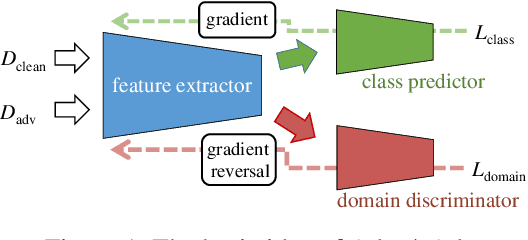
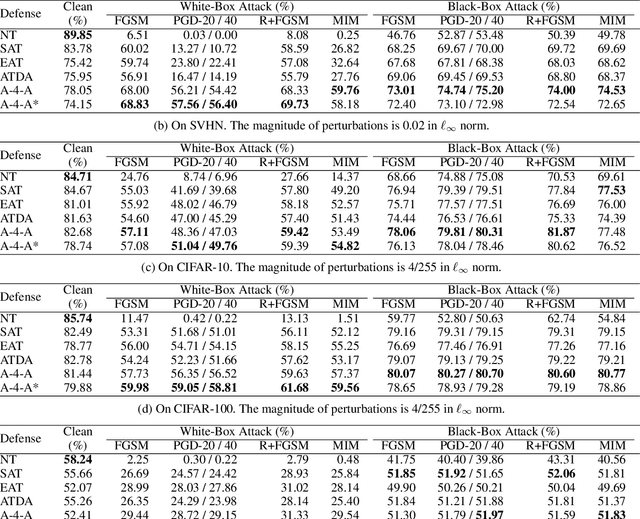
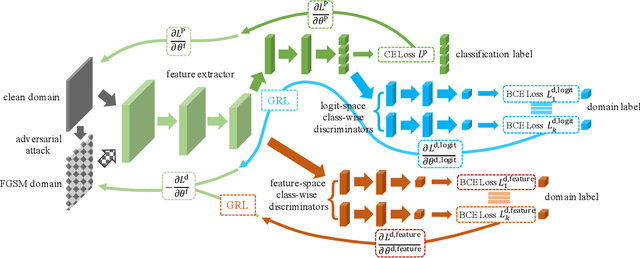
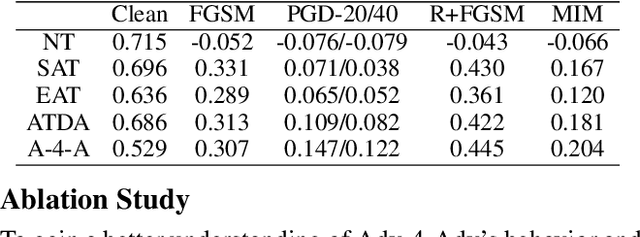
Abstract:Whereas adversarial training can be useful against specific adversarial perturbations, they have also proven ineffective in generalizing towards attacks deviating from those used for training. However, we observe that this ineffectiveness is intrinsically connected to domain adaptability, another crucial issue in deep learning for which adversarial domain adaptation appears to be a promising solution. Consequently, we proposed Adv-4-Adv as a novel adversarial training method that aims to retain robustness against unseen adversarial perturbations. Essentially, Adv-4-Adv treats attacks incurring different perturbations as distinct domains, and by leveraging the power of adversarial domain adaptation, it aims to remove the domain/attack-specific features. This forces a trained model to learn a robust domain-invariant representation, which in turn enhances its generalization ability. Extensive evaluations on Fashion-MNIST, SVHN, CIFAR-10, and CIFAR-100 demonstrate that a model trained by Adv-4-Adv based on samples crafted by simple attacks (e.g., FGSM) can be generalized to more advanced attacks (e.g., PGD), and the performance exceeds state-of-the-art proposals on these datasets.
RF-Net: a Unified Meta-learning Framework for RF-enabled One-shot Human Activity Recognition
Oct 29, 2021
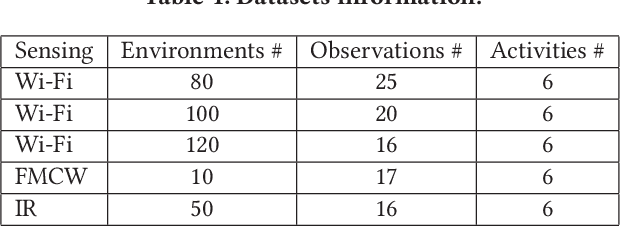
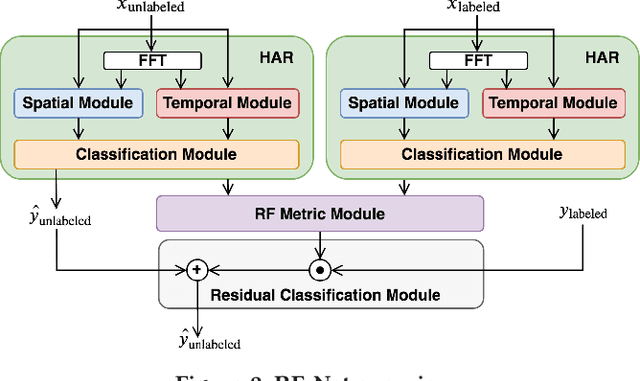

Abstract:Radio-Frequency (RF) based device-free Human Activity Recognition (HAR) rises as a promising solution for many applications. However, device-free (or contactless) sensing is often more sensitive to environment changes than device-based (or wearable) sensing. Also, RF datasets strictly require on-line labeling during collection, starkly different from image and text data collections where human interpretations can be leveraged to perform off-line labeling. Therefore, existing solutions to RF-HAR entail a laborious data collection process for adapting to new environments. To this end, we propose RF-Net as a meta-learning based approach to one-shot RF-HAR; it reduces the labeling efforts for environment adaptation to the minimum level. In particular, we first examine three representative RF sensing techniques and two major meta-learning approaches. The results motivate us to innovate in two designs: i) a dual-path base HAR network, where both time and frequency domains are dedicated to learning powerful RF features including spatial and attention-based temporal ones, and ii) a metric-based meta-learning framework to enhance the fast adaption capability of the base network, including an RF-specific metric module along with a residual classification module. We conduct extensive experiments based on all three RF sensing techniques in multiple real-world indoor environments; all results strongly demonstrate the efficacy of RF-Net compared with state-of-the-art baselines.
* 14 pages
Enhancing RF Sensing with Deep Learning: A Layered Approach
Oct 28, 2021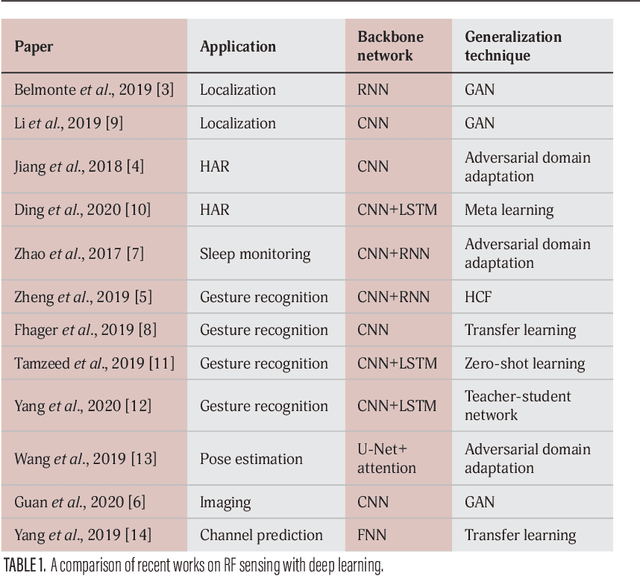
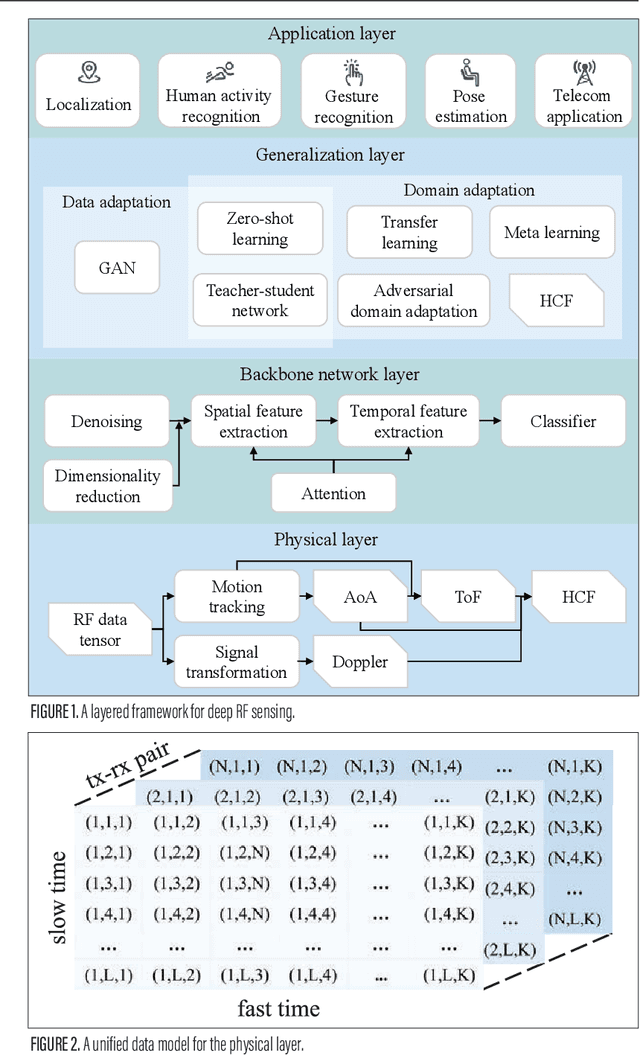

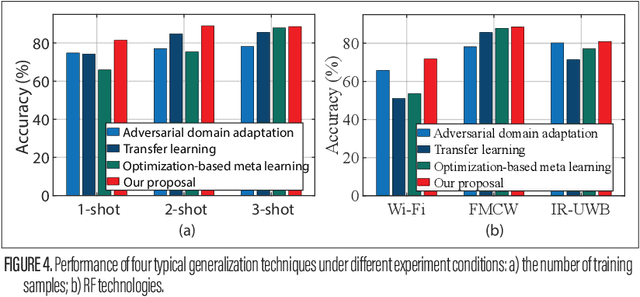
Abstract:In recent years, radio frequency (RF) sensing has gained increasing popularity due to its pervasiveness, low cost, non-intrusiveness, and privacy preservation. However, realizing the promises of RF sensing is highly nontrivial, given typical challenges such as multipath and interference. One potential solution leverages deep learning to build direct mappings from the RF domain to target domains, hence avoiding complex RF physical modeling. While earlier solutions exploit only simple feature extraction and classification modules, an emerging trend adds functional layers on top of elementary modules for more powerful generalizability and flexible applicability. To better understand this potential, this article takes a layered approach to summarize RF sensing enabled by deep learning. Essentially, we present a four-layer framework: physical, backbone, generalization, and application. While this layered framework provides readers a systematic methodology for designing deep interpreted RF sensing, it also facilitates making improvement proposals and hints at future research opportunities.
* 7 pages
Enhancing Intrinsic Adversarial Robustness via Feature Pyramid Decoder
May 06, 2020
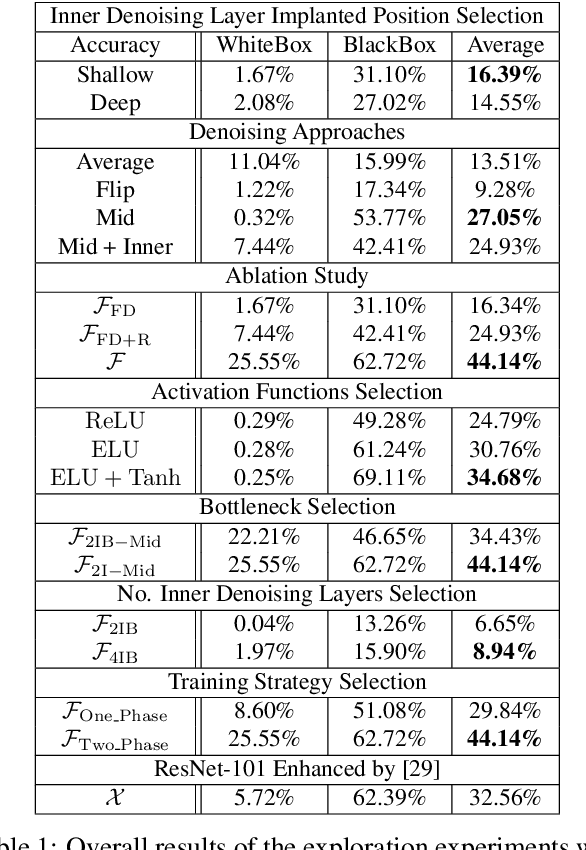


Abstract:Whereas adversarial training is employed as the main defence strategy against specific adversarial samples, it has limited generalization capability and incurs excessive time complexity. In this paper, we propose an attack-agnostic defence framework to enhance the intrinsic robustness of neural networks, without jeopardizing the ability of generalizing clean samples. Our Feature Pyramid Decoder (FPD) framework applies to all block-based convolutional neural networks (CNNs). It implants denoising and image restoration modules into a targeted CNN, and it also constraints the Lipschitz constant of the classification layer. Moreover, we propose a two-phase strategy to train the FPD-enhanced CNN, utilizing $\epsilon$-neighbourhood noisy images with multi-task and self-supervised learning. Evaluated against a variety of white-box and black-box attacks, we demonstrate that FPD-enhanced CNNs gain sufficient robustness against general adversarial samples on MNIST, SVHN and CALTECH. In addition, if we further conduct adversarial training, the FPD-enhanced CNNs perform better than their non-enhanced versions.
 Add to Chrome
Add to Chrome Add to Firefox
Add to Firefox Add to Edge
Add to Edge